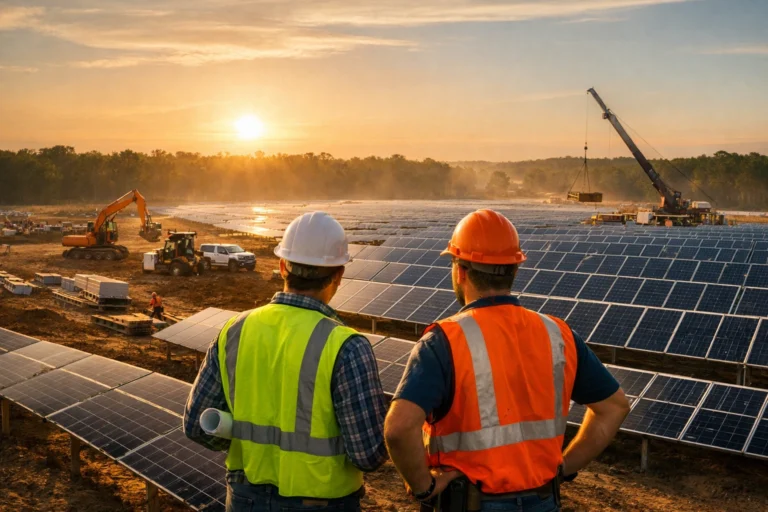
SLB Launches Tela™: A Revolutionary Agentic AI Platform to Transform the Energy Industry
Global energy technology leader SLB (NYSE: SLB) has announced the launch of Tela™, a groundbreaking agentic AI assistant designed specifically for the upstream energy sector. This innovation marks a significant step forward in how artificial intelligence can reshape workflows, enhance productivity, and improve decision-making across the oil and gas industry.
Unlike conventional AI tools that primarily automate discrete tasks, Tela is built to collaborate intelligently with users—understanding goals, learning from data, adapting dynamically, and taking independent action when needed. SLB aims to position Tela as a next-generation assistant that not only accelerates operations but fundamentally redefines how work is done in exploration and production environments.
A New Era of Agentic AI for Energy
At the heart of Tela lies agentic AI, a class of artificial intelligence that operates beyond automation. Instead of passively responding to commands, agentic AI systems actively observe, plan, generate, act, and learn—a continuous five-step process that enables them to interact with complex systems and improve over time.
Through this agentic model, Tela can handle highly technical energy workflows that require rapid and context-aware decision-making. For instance, Tela agents can:
- Interpret complex well logs to assist geoscientists in subsurface analysis.
- Predict drilling anomalies or risks before they occur, helping operators avoid costly downtime.
- Optimize equipment performance by analyzing real-time data from multiple sensors and recommending corrective actions.
Tela’s agents can work autonomously or in tandem with human teams, providing insights and recommendations that support faster, more informed decisions across exploration, drilling, and production operations.
Human Collaboration at Scale
SLB designed Tela with an intuitive conversational interface, allowing users to interact naturally through text or voice prompts. This seamless integration of human communication with AI-driven logic makes Tela a proactive collaborator rather than a background tool.
“Technology like Tela marks a paradigm shift in how AI supports the energy industry, from subsurface to operations,” said Rakesh Jaggi, President of Digital and Integration at SLB. “The industry faces a dual challenge: a leaner workforce and increasing technical complexity. Tela addresses both by augmenting human intelligence with digital precision.”
Jaggi emphasized that Tela goes far beyond traditional process automation. “Tela doesn’t just automate tasks — it understands objectives, makes decisions, and takes action. It represents the convergence of a century of domain expertise and the latest in digital innovation. Together, they amplify human ingenuity and redefine how work gets done.”
Powered by SLB’s Lumi™ Data and AI Platform
Tela’s capabilities are underpinned by SLB’s Lumi™ platform, which serves as the digital foundation for the company’s data and AI ecosystem. Lumi brings together large language models (LLMs) and domain foundation models (DFMs) — specialized models trained on decades of energy-specific data and workflows.
By combining these models, Tela gains the contextual understanding needed to interpret the complex and technical language of the energy industry. The Lumi platform enables Tela to generate insights, adapt workflows, and refine recommendations in real time based on observed outcomes and new data inputs.
Moreover, Lumi’s agentic framework allows operators and partners to build custom Tela agents suited to their unique operational needs. Clients can integrate their own data systems, incorporate third-party solutions, or tailor the AI’s behavior to reflect their business goals. This modular flexibility empowers companies to embed Tela directly into their existing platforms, field operations, or enterprise applications without disrupting established workflows.
Transforming Energy Workflows and Business Outcomes
The introduction of Tela comes at a time when the energy sector is under pressure to balance efficiency, sustainability, and workforce transformation. With growing demand for energy security and decarbonization, companies are turning to AI and digital technologies to extract more value from data while reducing operational risk and cost.
Tela directly addresses these challenges by providing a holistic view of complex systems, enabling AI-driven collaboration across disciplines and locations. For instance, an engineer in the field can query Tela about optimal drilling parameters, while a data analyst at headquarters can receive predictive insights about equipment wear or subsurface anomalies—all powered by the same AI network.
Jaggi noted that this adaptability represents the true promise of agentic AI. “It’s not just about faster workflows — it’s about seeing the whole system, anticipating what comes next, and acting with confidence. Tela learns through every interaction, constantly refining its understanding and improving enterprise outcomes.”
Redefining the Future of Digital Energy
With Tela, SLB reinforces its leadership in digital transformation for the global energy sector. The company has consistently been at the forefront of merging engineering expertise with data science, from developing real-time drilling analytics to enabling digital twins and cloud-based reservoir management systems. Tela builds upon this foundation by adding a layer of intelligent agency, enabling machines to learn, reason, and collaborate like never before.
By embedding Tela across its portfolio of software and platforms, SLB aims to make agentic AI a core capability of energy operations, much like automation or data analytics once were. Over time, this could lead to more autonomous, adaptive, and resilient systems capable of managing everything from well planning to production optimization with minimal human intervention.
“The energy industry has always evolved through innovation,” Jaggi concluded. “With Tela, we’re taking the next leap forward — combining human expertise with agentic intelligence to drive smarter, faster, and more sustainable outcomes across the energy value chain.”
Source Link: https://www.businesswire.com/










